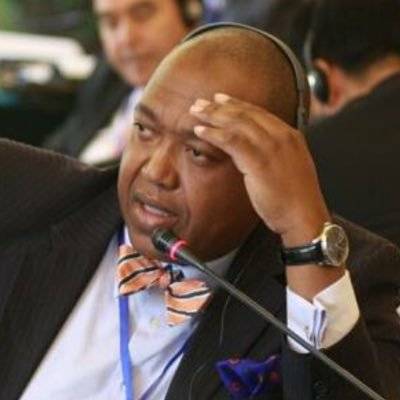I am not known for commentaries about East Asia; it’s just not “my” region. However, moments avail themselves occasionally where one can share close and informative discussions with experts from various parts of the world. I shared one such a moment with an expert from East Asia recently, which is why this article seeks to juxtapose the politics of US President Donald Trump in the Middle East with his politics there.
The rashly organised meeting that was scheduled for 12 June between Trump and North Korean President Kim Jong-un has been cancelled. Trump made the surprise announcement on 24 May after months of positive political dialogue between the US, North Korea and South Korea. The talking was kick-started in part by the election of South Korea’s President Moon Jae-in last year. His campaign pivoted around his desire to achieve peace with North Korea.
The signing of the Panmunjom Declaration on 27 April by Presidents Moon and Kim marked a milestone in the process. They agreed to halt hostilities and promised to further multilateral talks to formalise a peace treaty within a year. Face-to-face meetings between the leaders of the two Koreas preceded the declaration, and their historic handshake in the demilitarised zone on the North and South Korea border was followed by another memorable moment when US Secretary of State Mike Pompeo met with Kim in the North Korean capital Pyongyang. Pompeo also secured the release of three US citizens who were imprisoned in North Korea. Tony Kim and Kim Hak-song were arrested about a year ago, and Kim Dong Chul had been held since 2015. They were all accused of anti-North Korea activities.
It all looked good for a while, but those in the know argue that the planned summit was doomed from the beginning because the plans were made in haste and failed to follow the protocols necessary to guarantee a successful meeting. Moreover, soon after the announcement of the summit on 8 March, reports emerged that Trump had bypassed his then Secretary of State Rex Tillerson in making the decision. Tillerson was not convinced that the time was right. “Rex Tillerson said, less than a day before the announcement, that conditions were not yet ripe for negotiations with North Korea,” reported CNN. Tillerson was sacked on 30 March.
There were also reports suggesting that Trump had jumped the gun and stunned all parties involved, not least North Korea and its greatest ally and powerful neighbour, China. According to Business Reporter, the US President reportedly agreed to meet Kim Jong-un immediately after South Korean officials floated the idea during their visit to the White House on 8 March and he wanted them to announce it straight away.
The cracks in the possibility of a successful summit began to show when China “summoned” Kim Jong-un to Beijing for a meeting with President Xi Jinping on 25 March. The meeting was meant to rein-in North Korea. How, it was asked, could Kim allow a public announcement of such importance without consulting China? Unbeknown to the Chinese at the time, North Korea itself was not even consulted about the summit or its proposed timeline. The Beijing meeting was also meant to take the spotlight off Trump, who had gone on a public relations spree about his great political achievement in the process.
In fact, the Beijing meeting was a wake-up call for Trump which highlighted an important fact; East Asia is not the Middle East. Its politics are totally different to those of the Middle East; as one local observer told me in confidence, that’s “where Trump has done as he pleased since his election.” There are political players there without whom any outside interventions hardly ever succeed. Unlike the Middle East, which includes a number of America’s client states – Egypt, Jordan, Israel, for example – East Asia has strong independent states which do not share the kind of bloc thinking that is induced by Washington’s “Deep Pocket” foreign policy.
Furthermore, added my contact, “China is not Saudi Arabia, it will not dance to the tune of the US whenever the music plays.” Beijing will never allow the US to scoop such a historic moment. If any peace is to be achieved between the two Koreas, it has to be facilitated by China. The Chinese will never let a US President bask in glory in the region, something that the US should have anticipated. At best, China might allow the two Koreas to drive the process themselves without the involvement of the Americans.
Washington has always involved regional powers when dealing with the Israel-Palestine issue; Egypt, Jordan and, more recently, Saudi Arabia have all been part and parcel of the peace process. Why, then, did Donald Trump think that he could achieve such a historic move in Korea without involving – privately and publicly – the regional powerhouse, China? It was a serious miscalculation which was always going to backfire on him.
Perhaps most importantly, North Korea is an important trump card for China. Kim’s nuclear threat to the region and indeed the world renders China more important in global politics. It is the only country that can rein the North Korean leader in, and it will never give up such leverage.
The views expressed in this article belong to the author and do not necessarily reflect the editorial policy of Middle East Monitor.


![President Donald Trump gives his first State of the Union address to Congress and the country in Washington, United States on 30 January, 2018 [Samuel Corum/Anadolu Agency]](https://i0.wp.com/www.middleeastmonitor.com/wp-content/uploads/2018/02/2018_2-7-trump20180131_2_28425745_30309325.jpg?fit=1200%2C800&ssl=1)









